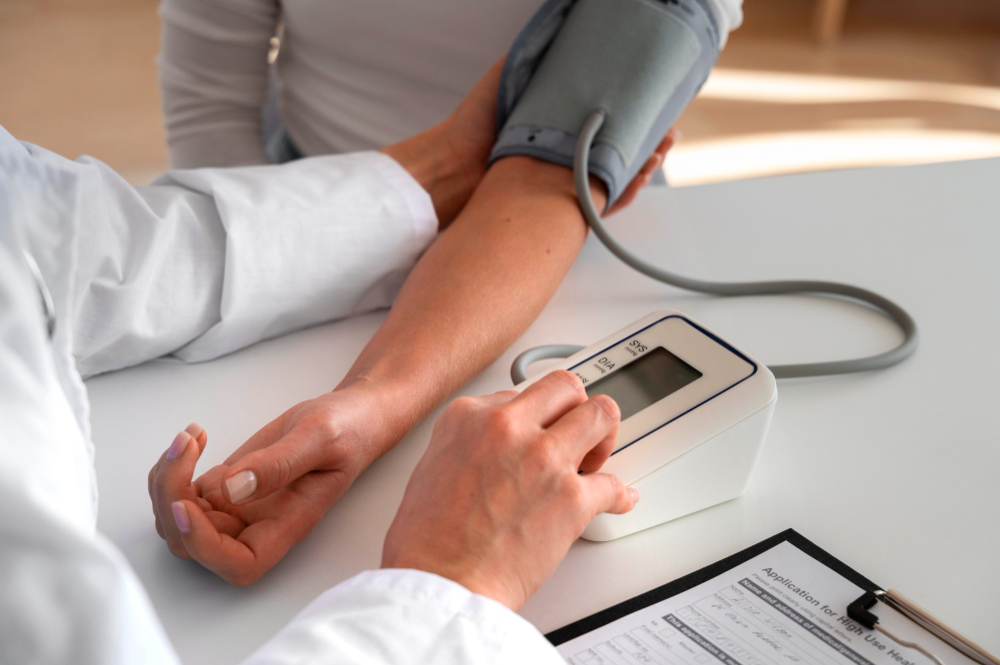May is High Blood Pressure Awareness Month. High blood pressure, or hypertension, is a common condition that affects millions of people worldwide. It is a significant risk factor for heart disease, stroke, and other health problems. In this blog post, we will discuss some lesser-known aspects of high blood pressure, including how it can be passed down through families, the types of foods and drinks that can cause or worsen high blood pressure, and the impact of sleep on blood pressure.
High Blood Pressure and Genetics
High blood pressure can run in families. If one or both of your parents have high blood pressure, you are more likely to develop it too, although the exact genetic mechanisms that cause high blood pressure are not yet completely understood. Still, doctors believe that several genes interact with each other and the environment to increase the risk of developing high blood pressure.
There are some specific types of high blood pressure that are inherited, such as familial hyperaldosteronism, Liddle syndrome, and pheochromocytoma. These conditions are relatively rare, but if you have a family history of these conditions, you should talk to your healthcare provider about screening and monitoring for high blood pressure.
Food and Drink that Affect High Blood Pressure
The food and drink you consume can significantly affect your blood pressure levels. A diet high in salt, saturated and trans fats, and processed foods can increase the risk of developing high blood pressure. Some specific foods and drinks that can cause or worsen high blood pressure include:
- Salt: Consuming too much salt can lead to fluid retention, which can increase blood pressure. The American Heart Association recommends consuming no more than 2,300 milligrams of sodium per day, but ideally less than 1,500 milligrams per day.
- Alcohol: Drinking too much alcohol can raise blood pressure levels. The American Heart Association recommends limiting alcohol intake to no more than two drinks per day for men and one drink per day for women.
- Caffeine: While caffeine can cause a temporary spike in blood pressure, it does not seem to have a significant effect on long-term blood pressure levels. However, some people are more sensitive to caffeine than others, and it’s essential to monitor your blood pressure after consuming caffeinated beverages.
- Processed foods: Many processed foods contain high amounts of sodium, sugar, and unhealthy fats, all of which can contribute to high blood pressure. It’s important to read food labels carefully and choose whole, nutrient-dense foods as much as possible.
The Impact of Sleep on Blood Pressure
Blood pressure typically dips during sleep, but for some people, it can remain high, leading to an increased risk of cardiovascular disease. Sleep apnea, a condition where a person stops breathing for short periods during sleep, is often associated with high blood pressure. The condition can cause changes in the way the body regulates blood pressure, leading to a persistent increase in blood pressure levels.
Lack of sleep can also lead to an increase in blood pressure levels. Studies have shown that people who get less than six hours of sleep per night are at a higher risk of developing high blood pressure. It’s essential to prioritize sleep and aim for at least seven to eight hours of quality sleep each night.
Managing High Blood Pressure
If you have high blood pressure, it’s essential to work with your healthcare provider to manage the condition. This may include making lifestyle changes such as eating a healthy diet, reducing sodium intake, getting regular exercise, managing stress, and quitting smoking. Medications may also be prescribed to help manage high blood pressure.
If you have a family history of high blood pressure, it’s essential to be vigilant about monitoring your blood pressure levels regularly and making healthy lifestyle choices to help prevent or manage the condition.
High blood pressure is a prevalent and potentially serious condition that can be passed down through families. It’s important to be aware of your family history of high blood pressure and take steps to manage the condition if necessary.

Recent Comments